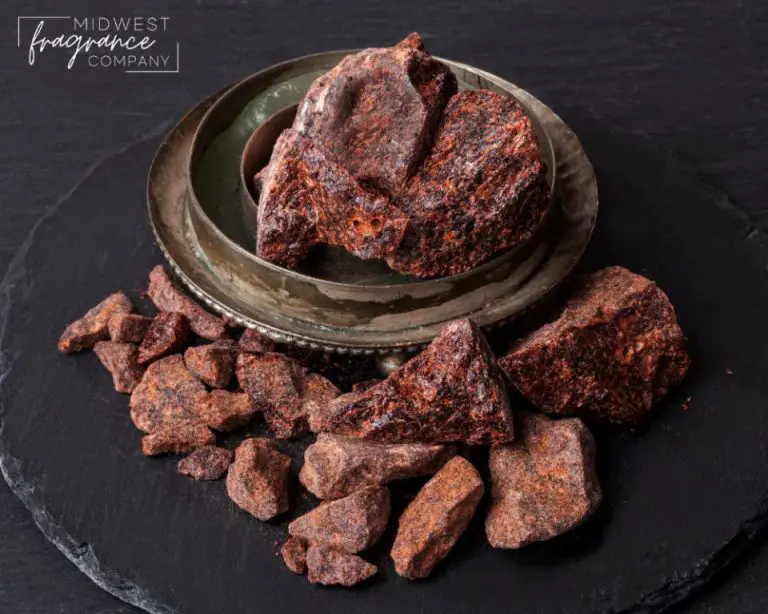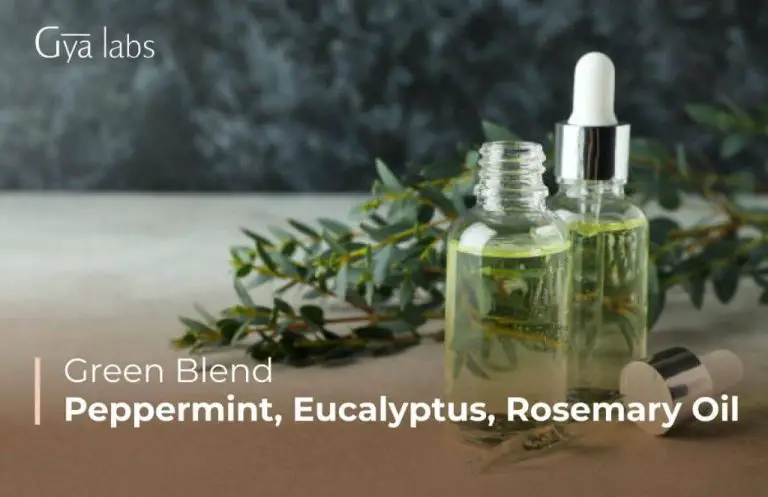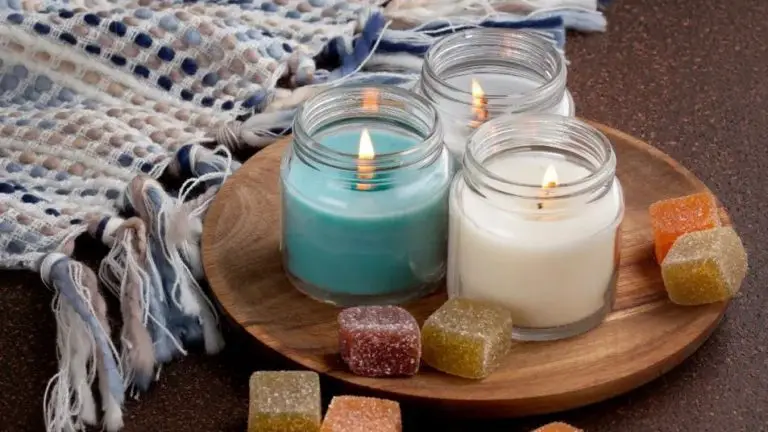Can Any Oil Be Used In A Diffuser?
What is a Diffuser?
A diffuser is a device that disperses essential oils into the air so you can breathe in their aromatherapeutic benefits. Diffusers work by using ultrasound waves or heat to break down the essential oils into a microfine vapor that is then dispersed into the air (source).
There are several types of diffusers including ultrasonic, nebulizing, evaporative, and heat diffusers. Ultrasonic diffusers use electronic frequencies to vibrate a small disk underneath the oil, creating a fine mist. Nebulizing diffusers use pressurized air to atomize the oils. Evaporative diffusers allow the oils to naturally evaporate over time. Heat diffusers use warmth to disperse the oils.
Using an essential oil diffuser provides many benefits such as:
- Filling a room with a pleasant fragrance
- Providing an aroma therapeutic experience
- Helping to purify and humidify the air
- Serving as an alternative to synthetic room scents or candles
Overall, diffusers are an excellent way to experience the benefits of essential oils aromatically in your home or office.
Types of Oils Used in Diffusers
Two main types of oils are commonly used in diffusers: carrier oils and essential oils. Carrier oils are used to dilute essential oils before diffusion. The most popular carrier oils for diffusers are fractionated coconut oil, grapeseed oil, and sweet almond oil (source). These carrier oils don’t have a strong scent and help disperse the essential oils into the air.
Essential oils are concentrated extracts derived from plants that provide aroma and therapeutic benefits. The most popular essential oils used in diffusers are lavender, lemongrass, peppermint, and tea tree oil. Lavender is known for its calming and relaxing scent. Lemongrass provides an uplifting citrus aroma. Peppermint has an invigorating scent that can improve focus. Tea tree oil has cleansing properties and a medicinal scent. When selecting essential oils for your diffuser, be sure to choose 100% pure therapeutic-grade oils intended for diffusion (source).
Factors to Consider When Choosing Oils
There are several important factors to keep in mind when selecting oils for your diffuser:
Purity and Quality of Oil – Be sure to choose 100% pure therapeutic grade essential oils from reputable brands. As some oils are diluted or blended with synthetics, it’s important to check purity and quality, which can impact scent and effectiveness (Forbes, 2021).
Intensity and Aroma – Consider the strength of aroma you desire. Some essential oils like peppermint and lemongrass have intense scents, while others like lavender are more mild.
Desired Effects and Benefits – Choose oils that offer the benefits you aim for, like stress relief, energy boosting, respiratory support, etc. Know the properties of oils to pick the right ones for your needs.
Blending and Mixing Oils – You can blend complementary oils together for more complex aromas. However take care with sensitivities and avoid combining too many intense oils at once.
How to Use Essential Oils Safely
When using essential oils, it’s important to follow safety guidelines to avoid any adverse reactions or unwanted effects. Here are some key tips for safely using essential oils:
Read labels and directions carefully – Always check the label for any warnings or precautions before using an essential oil. Pay attention to dilution ratios, especially when using on skin. As a general rule, essential oils should be diluted with a carrier oil like coconut, jojoba, or olive oil before topical use.
Dilute oils properly with carrier oils – Most essential oils need to be diluted before applying to skin. A usual dilution is 3-5% essential oil to carrier oil. Some oils like peppermint are safe at 10% dilution. Never apply undiluted essential oils directly as they can cause sensitization or irritation (Healthline).
Consider allergies and sensitivities – Do a patch test on a small area of skin before wider use. This checks for any allergic reactions. Avoid using oils that you have sensitivities or allergies to.
Avoid prolonged exposure – Do not use essential oils, especially undiluted oils, for long periods. Follow recommended time limits when diffusing oils as well. Taking breaks prevents sensitization.
Keep out of reach of children and pets – Oils can be harmful if ingested, especially by children or pets. So keep all oils safely out of their reach.
Storing and Maintaining Oils
Proper storage is crucial for preserving the integrity and potency of essential oils. Oils should always be stored in dark glass bottles to protect them from light exposure. UV rays can degrade certain compounds in essential oils over time. Keeping oils stored away from direct light and heat sources will help maximize their shelf life.
It’s also important to properly label all essential oil bottles with the oil name and date of purchase or opening. This helps keep track of when each oil was obtained and whether it’s approaching its expiration date. Most essential oils have a shelf life of 1-2 years when stored correctly.
According to the experts at Young Living, essential oils should be “sealed tightly and stored upright in a cool, dark, dry location” [1]. A rule of thumb is to store oils between 50-70°F. Avoid temperature fluctuations and avoid leaving oils in your car or direct sunlight.
Following proper storage and labeling best practices will maintain the quality of your essential oils and allow you to safely enjoy their benefits when diffusing.
Choosing the Right Diffuser
There are several types of diffusers to choose from, each with their own benefits and drawbacks. The main types of diffusers include:
Ultrasonic Diffusers
Ultrasonic diffusers use electronic frequencies to vibrate and break down essential oils into microscopic particles that are dispersed into the air (https://wellnessmama.com/health/essential-oil-diffusers/). They tend to be affordable, quiet, and efficient. Ultrasonic diffusers also come in a variety of sizes to cover small to large spaces.
Nebulizing Diffusers
Nebulizing diffusers use pressurized air to atomize oils into a fine mist (https://www.nytimes.com/wirecutter/reviews/best-essential-oil-diffusers/). They don’t require heat or water, so they can diffuse pure, undiluted oils. However, they tend to be more expensive and louder than ultrasonic models.
Evaporative Diffusers
Evaporative diffusers use a fan to blow air across a wick soaked in essential oils. They are very quiet and don’t require heat or water. However, they have a weaker aroma than ultrasonic or nebulizing diffusers.
Heat Diffusers
Heat diffusers gently warm essential oils to help them evaporat into the air. They don’t require water or electricity, but can alter the chemical composition and benefits of oils when heated (https://reviewed.usatoday.com/home-outdoors/best-right-now/the-best-essential-oil-diffusers).
When selecting a diffuser, consider the size of the space you want to scent, how long you want it to run between refills, and how easy it is to operate and clean. Look for models with multiple timer settings, auto shut-off, and easy access reservoirs.
Popular Essential Oil Diffuser Blends
There are many essential oil blend recipes that can be used in diffusers to promote various benefits. Here are some of the most popular diffuser blends:
For Sleep
Diffusing calming essential oils before bedtime can help prepare your body and mind for restful sleep. Some blends to try are:
- Lavender + Bergamot – Lavender is known for its relaxing properties while bergamot can reduce anxiety and stress (Young Living).
- Frankincense + Clary Sage – Frankincense induces feelings of tranquility and clary sage has a soothing, calming scent.
For Stress Relief
Diffusing uplifting essential oils can help relieve stress and tension. Recommended blends include:
- Grapefruit + Lemon + Peppermint – These citrus oils contain limonene which has been shown to lift mood and reduce stress (dōTERRA).
- Bergamot + Ylang Ylang – Bergamot reduces cortisol levels while ylang ylang promotes relaxation.
For Energy
Peppy, invigorating scents can help boost energy levels. Try diffusing:
- Peppermint + Wild Orange – Peppermint’s menthol content gives an energizing effect while wild orange uplifts mood.
- Grapefruit + Rosemary + Lemon – These citrus oils are refreshing and stimulating.
For Focus
Diffusing grounding essential oils can help improve concentration and focus. Some options include:
- Frankincense + Cedarwood – Frankincense calms the mind while cedarwood improves focus.
- Rosemary + Peppermint – Rosemary boosts cognition and memory while peppermint increases alertness.
When blending oils, use 2-3 oils in fairly equal proportions. Always ensure oils are diluted properly in the water reservoir to avoid sensitivities.
Precautions When Using Diffusers
While diffusers can provide various benefits, it’s important to take precautions when using them. Here are some key safety tips:
Never use a diffuser near an open flame or heat source. Essential oils are highly flammable and could ignite if exposed to flames, sparking appliances, or high temperatures [1].
Clean and change the water in your diffuser regularly according to the manufacturer’s instructions. Stagnant water can breed bacteria and mold [2].
Carefully monitor children and pets around diffusers, as essential oils may irritate their skin or respiratory systems. Keep diffusers out of reach and never apply oils directly to children or pets without first consulting a doctor [1].
Avoid diffusing oils continuously for prolonged periods as this may overwhelm the senses and possibly cause headaches or nausea. Take occasional breaks or diffuse intermittently [3].
Benefits of Using a Diffuser
Diffusing essential oils provides many benefits that enhance wellbeing. The aromas from essential oils can have positive effects on mood, stress levels, sleep quality, and respiratory function.
Inhaling essential oil molecules sends signals to the limbic system, the emotional center of the brain. This can help relieve anxiety, boost mood, and reduce stress. The calming aromas of oils like lavender and chamomile can promote relaxation and sleep.
Diffusing essential oils can also help with respiratory issues like colds, allergies, asthma, and congestion. Menthol and eucalyptus oils contain compounds that open airways and relieve sinus pressure. The moisture vaporized into the air can also soothe dry nasal passages and throats.
Using a diffuser provides pleasant aromas that freshen indoor air. It’s an alternative to synthetic fragrances and air fresheners. The soothing scents create a comforting environment. Overall, diffusing oils offers many versatile wellness benefits.
Summary
In summary, there is a wide variety of oils that can be used in diffusers, from essential oils like lavender and eucalyptus to carrier oils like coconut and jojoba. When choosing oils, consider factors like aroma, benefits, safety, purity and suitability for your diffuser. Always read label instructions and start with low diffuser settings to ensure safe use.
To recap, some key points on using oils in diffusers:
- Research oils to understand benefits and precautions before diffusing
- Only use 100% pure, high-quality oils from reputable brands
- Choose oils suitable for your diffuser type (ultrasonic, heat, nebulizing etc)
- Mix oils properly by using correct ratios of essential to carrier oils
- Be mindful of allergies, pregnancies and health conditions when diffusing
- Follow usage guidelines and start with short diffusing sessions
- Clean and maintain your diffuser regularly for safety and effectiveness
By selecting the right oils and diffuser for your needs, you can safely unlock all the aromatherapeutic benefits these handy devices have to offer.




